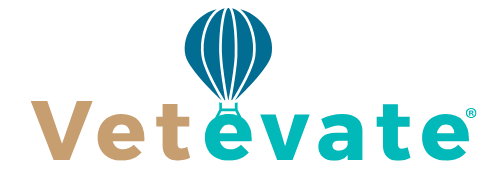Veterinary job boards occupy a unique position in the animal health industry. They are not just websites that post job openings—they are vital connectors between the professionals who care for animals and the organizations that need their expertise. To be effective, these platforms must recognize and embrace their dual role in serving both employers and job seekers. When a veterinary job board prioritizes both groups equally, it creates a balanced ecosystem where opportunity, growth, and long-term relationships can thrive. If one side is neglected, the entire platform suffers, and the matches it produces are weaker and less sustainable.
The veterinary profession depends on alignment between teams and individuals. Employers need skilled, compassionate team members who match their values and practice style. Job seekers need workplaces where they can grow, feel respected, and contribute meaningfully. It’s not just about filling vacancies—it’s about creating teams that function well and support the wellbeing of both humans and animals. A job board that positions itself as a partner to both sides of the equation plays a critical role in enabling that success.
This requires more than just posting jobs and resumes. It means understanding what each group needs, what challenges they face, and how the platform can help. For employers, it’s about efficiency, access to qualified talent, and tools to communicate their culture. For job seekers, it’s about finding meaningful work, accessing resources, and feeling seen and supported. When job boards are willing to serve both audiences with equal care and commitment, they become indispensable to the profession as a whole.
Understanding the Needs of Employers
Veterinary employers range from solo practitioners to multi-location corporate groups, from nonprofits and academic institutions to zoos and mobile units. Each type of employer has its own challenges when it comes to hiring. Some struggle with visibility, while others need help attracting candidates to less-populated regions. Some are focused on retaining talent through mentorship and benefits, while others simply need to fill shifts with qualified relief vets. A job board that truly serves employers understands this diversity and responds with features that meet those needs.
When veterinary job boards are willing to listen to employers and adapt accordingly, it creates a smoother hiring experience. For example, a rural practice might need more detailed filtering tools to find candidates open to relocation. A specialty hospital might want the ability to search resumes by board certification or advanced training. A nonprofit rescue might be hiring for the first time and need support writing an effective job post. By offering flexible, intuitive tools and responsive customer service, job boards demonstrate their commitment to helping practices grow and succeed.
Serving employers well also means helping them present their opportunities in the best possible light. That includes not only customizable job templates but also guidance on best practices, employer branding tips, and media support. A job board that actively helps employers attract the right talent increases the quality of matches and reduces the stress that comes with staffing challenges. It shows that the platform understands what’s at stake—not just for the business, but for the animals and clients that rely on them.
Employers don’t want to feel like they’re just paying for a post and left on their own. They want a partner. A veterinary job board that is willing to engage with their goals and challenges—not just offer tools, but offer support—creates long-term loyalty and trust. In a competitive market, that kind of service is what keeps employers coming back.
Supporting the Career Journeys of Job Seekers
Veterinary job seekers are not a monolith. They include new graduates, experienced clinicians, specialists, technicians, administrators, and even those exploring a career shift. They may be looking for full-time roles, part-time shifts, contract relief work, or remote telemedicine positions. A job board that is willing to serve job seekers well must account for this diversity and provide tools that support individuals at every career stage.
Job seekers don’t just want a list of job openings—they want to feel guided and supported through what can be a life-changing process. A truly service-oriented job board provides a user experience that is intuitive, flexible, and empowering. It allows users to filter jobs according to what matters most: species, work schedule, benefits, location, and culture. It gives them the option to set alerts, upload resumes, and manage their applications easily. Most importantly, it treats job seekers as valued members of the veterinary community, not just users on a screen.
Serving job seekers also means being responsive to their concerns and respectful of their time. A platform that is slow to update, riddled with expired listings, or lacks contact information for employers undermines the trust job seekers place in it. Conversely, a board that provides real-time postings, clear application instructions, and transparency about compensation and expectations helps job seekers make confident, informed decisions. It sends the message: your time and talent are respected here.
In many cases, job seekers are at a vulnerable point in their careers. They may be recovering from burnout, seeking better work-life balance, or trying to relocate closer to family. A job board that’s willing to serve them fully will offer more than listings—it will offer resources like resume templates, interview tips, mental health support links, and access to continuing education. It will provide encouragement, not just transactions. And in doing so, it will earn the trust of those who use it not just once, but throughout their professional lives.
Strengthening the Veterinary Profession as a Whole
When veterinary job boards are willing to serve both employers and job seekers equally, they do more than facilitate hiring—they help strengthen the profession. This dual commitment creates better communication, higher-quality matches, and a more stable workforce. It also creates a sense of community and shared purpose that benefits everyone involved. A job board that only caters to one side risks becoming lopsided, transactional, and ultimately irrelevant. But one that sees itself as a bridge can become a true force for progress in veterinary medicine.
The veterinary field is facing complex challenges: shortages of qualified professionals, rising demand for services, evolving expectations around workplace culture, and ongoing concerns about mental health and career sustainability. Job boards that remain neutral platforms miss the opportunity to actively contribute to solving these issues. But those that are willing to roll up their sleeves and support both sides can be part of the solution. They can collect and share data, identify hiring trends, advocate for fair compensation, and amplify voices across the industry.
In addition, when job boards support both employers and job seekers, they promote transparency. They help set clear expectations around job requirements, compensation, and responsibilities. This reduces miscommunication, shortens hiring timelines, and improves satisfaction for both parties. Over time, this transparency leads to stronger retention, healthier work environments, and better outcomes for animals and clients alike.
Finally, this dual focus creates loyalty. Employers trust the platform because they know it works. Job seekers return to the platform because they feel understood. And both groups recommend the platform to their peers. This kind of mutual respect and shared success is the hallmark of a veterinary job board that is willing—and eager—to serve.
The Value of Veterinary Job Boards
Veterinary job boards are not simply tools—they are service platforms with the power to shape careers, build teams, and improve the future of veterinary care. To fulfill that responsibility, they must be equally committed to the needs of both employers and job seekers.
By offering responsive support, customized features, and resources that reflect the complexity of the veterinary profession, these platforms can do far more than post jobs. They can build relationships, build trust, and contribute meaningfully to the health of the entire industry. In a field defined by compassion and connection, the best job boards lead by example—serving all with dedication, insight, and heart.




